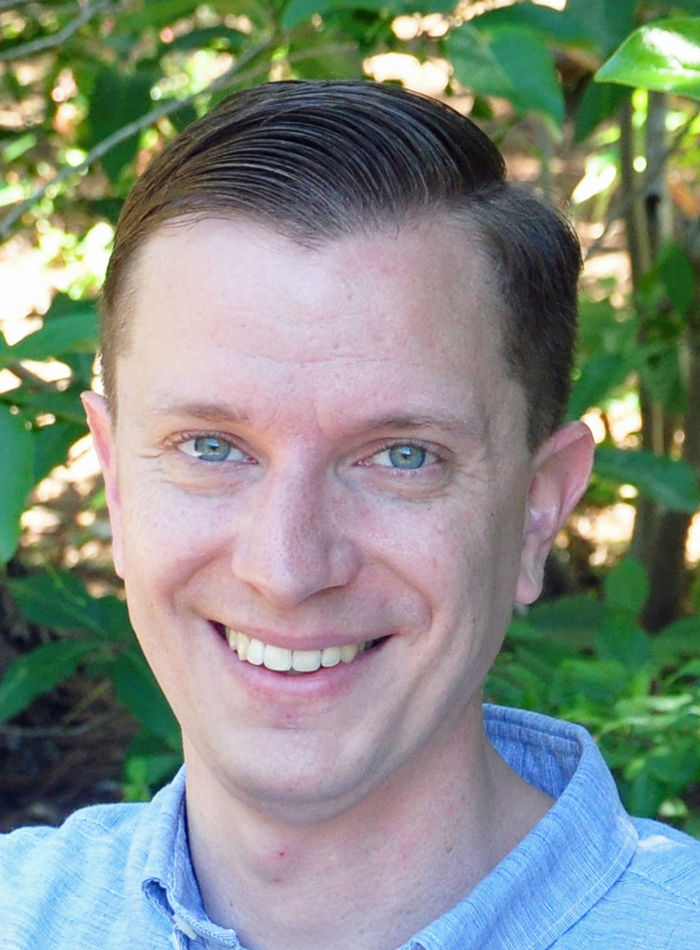
How and/or why did you become a therapist?
I was a Political Science major during undergraduate studies, but realized after graduation that I had a knack for listening to people, being able to take multiple perspectives, feeling and dealing with a full range of emotions, and feeling ok being an active part of people’s lives who were experiencing trouble. I worked for a psychologist briefly as a testing assistant, and didn’t find that rewarding, but when I started working with families with complicated circumstances as a counselor everything made sense. I continued that work for a couple of years, went on to earn a Masters of Social Work with a focus on Clinical Social Work, worked many other public agency positions, and eventually found myself much more focused on people’s relationships and how they coordinate their emotions and intentions. I am now a Licensed Clinical Social Worker and Certified Emotionally Focused Therapist who sees mostly couples and families in my private practice in Durham, NC.
What are the most rewarding aspects of being a therapist?
Connecting with people and helping them undo their aloneness and despair. Helping people make sense of their emotional lives and their closest relationships, and helping them build and rebuild rewarding, secure relationships is the most rewarding work I could ever do.
What’s unique or special in your background or approach to interpersonal relationships?
I am one of a limited number of Certified Emotionally Focused Therapists (as well as a Supervisor Candidate) in the world, which means that I privilege people’s felt emotional experiences and the associated attachment needs and help clients make sense of those in an organic here-and-now way. I do not teach communication skills, problem-solving skills, or how to “fight fair,” but rather bring people safely into their authentic emotional experience, and help them find the courage to assertively share and hear emotions in relationships. I hold the space in my office so that it is safe for all persons to understand each other. I have also been trained in many other approaches to psychotherapy and couple/family therapy, all of which revolve around privileging what it is that my client’s need and want first.
What are your favorite or most interesting interpersonal relationship tips/advice?
Turning towards your partner with vulnerable emotions, while at times scary/risky, is the path towards intimacy. If an emotion feels like a shield, you’re not in your core, vulnerable emotions yet. Look to the signals your body sends you first… a tightness in your chest can mean fear, a lump in the throat can mean sadness, a pit in the stomach can mean dread. What does that feeling want to say about your need in-the-moment in the relationship? Can you take a risk to share this with your partner, and if not, can you tell your partner about what feels too risky? If you hear this from your partner, can you just listen to the feeling without fixing, and simply be with them so they aren’t alone? I recommend everyone read the book Hold Me Tight by Sue Johnson.
What are some things about therapy that you want to increase public awareness about?
Therapy should be a safe and validating experience that isn’t about fault finding or fixing flaws. Therapy is about growth, healing, and compassion. Therapy is about having the right relationship conditions so that what is natural (healing and growth) can occur. Emotions aren’t the problem… they are actually part of the solution. The best learning is done from the inside-out.
What are some of the biggest mistakes a therapist or patient can make?
For a therapist, thinking you know better than your client or that you’ve somehow got it all figured out. There’s always more to learn, and no one knows the experience of another as well as that other person. Get feedback from your clients.
For a client/patient, I don’t know that you can make a mistake by taking a risk in coming to therapy… when you’re ready to do the work and the environment is right, you’re likely to do it. Remember that relationships (including therapy) include you but it’s more than you… it’s about the dance or dynamic created between you and someone else rather that just what one person is doing. But watch out for pitfalls… blame, defensiveness… those are usually signs that you need to be understood more.
Bio
James McCracken, MSW, LCSW is a Licensed Clinical Social Worker and ICEEFT Certified Emotionally Focused Couple Therapist and Supervisor Candidate who operates a private practice in Durham, NC focused on treating relationship distress. His professional background includes serving a variety of community-based populations experiencing a variety of problems including relationship distress, psychiatric and serious emotional disorders, addiction disorders, chronic and terminal medical conditions, and extreme psychosocial distress. James believes that by focusing on strengthening clients’ naturally occurring relationships, independent of what other problems they may experience, we can facilitate lasting and empowering change for adults and their children. His practice website is located at http://www.jamesmccrackenlcsw.com/. In addition to his clinical practice, James also co-owns a relationship education and enhancement business, Shelter Each Other, LLC, and a clinical software company, both located in North Carolina.